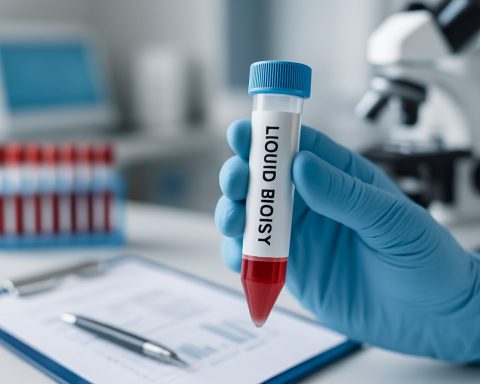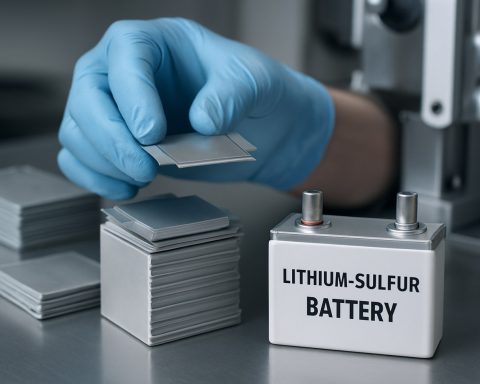- Mobis India Limited has launched a state-of-the-art EV Battery System Assembly plant in Sriperumbudur, Tamil Nadu.
- The plant covers 8.15 acres and has the capacity to produce 36,000 electric vehicle batteries annually, with potential expansion to 75,000 units.
- The facility will manufacture Nickel-Manganese-Cobalt battery packs for Hyundai’s upcoming Creta Electric and plans to include Lithium-Iron-Phosphate batteries in the future.
- This initiative is expected to create 255 jobs and boost local economic growth while advancing India’s shift to green mobility.
- Mobis India’s move emphasizes innovation and sustainability, aligning with global efforts and events like the Evertiq Expo.
- The project highlights the onset of an electric revolution, driving significant changes in the automotive sector.
Nestled amid the bustling automotive corridor of Sriperumbudur, Tamil Nadu, a monumental stride toward a cleaner, more sustainable future quietly unfolds. Mobis India Limited, a steadfast ally of Hyundai Motor India Limited, has unveiled a cutting-edge EV Battery System Assembly plant—a beacon of innovation that gleams across 8.15 acres of industrious landscape.
The facility, strategically adjacent to Hyundai’s car manufacturing powerhouse, is primed with a robust initial capacity to churn out 36,000 electric vehicle batteries annually. Its scalable design is not just a testament to great foresight but a clarion call to meet the burgeoning demand for green mobility in India. This technological marvel can potentially double its output to an impressive 75,000 units, promising greener roads and cleaner air.
The plant’s rhythmic hum will soon echo the creation of Nickel-Manganese-Cobalt battery packs, which will find their home under the hoods of the much-anticipated Hyundai Creta Electric. This ambitious foray into electric vehicles not only underscores Hyundai’s commitment to innovation but also signals a remarkable shift towards more locally manufactured components, with plans to incorporate Lithium-Iron-Phosphate batteries looming on the horizon.
As 255 new jobs blossom from this venture, it stands as a testament to the plant’s potential to ignite economic growth and propel the Indian automotive industry toward a sustainable ethos. The excitement radiates beyond the plant’s walls as local leaders recognize this initiative as a pivotal leap toward India’s clean mobility transition.
Conversations about the future of electronics are buzzing across the globe, converging in events like the Evertiq Expo, where expert minds sculpt the narrative of technological evolution. Here lies a future intertwined with the meticulous threads of innovation and sustainability—a future Mobis India Limited is crafting today with a profound step in Tamil Nadu.
As the sun sets behind the expansive fields of Sriperumbudur, one can’t help but envision a road to tomorrow paved with the quiet whir of electric engines—a road that began with a bold vision and a passionate heartbeat for a cleaner future. The takeaway is clear: the electric revolution is not just coming; it is here, driving change, unlocking opportunities, and sparking a new age of mobility.
The Electric Revolution: What’s Next for India’s Green Mobility?
A Deeper Dive into the EV Battery System Assembly by Mobis India
Nestled in the bustling automotive hub of Sriperumbudur, Tamil Nadu, Mobis India Limited makes a significant stride toward a sustainable future with its new EV Battery System Assembly plant. This development holds immense potential for India’s push towards greener mobility. Let’s explore additional insights and implications of this groundbreaking venture.
Key Features and Specifications
The Mobis India plant, sprawling over 8.15 acres, is strategically positioned near Hyundai’s car manufacturing facility. Here are some pivotal features:
– Initial Capacity: The plant can initially produce 36,000 EV batteries annually, promising to meet the burgeoning demand for electric vehicles in India.
– Scalability: The facility’s design allows for an expansion of output to 75,000 units, aligning with future market demands.
– Battery Types: Currently, the focus is on Nickel-Manganese-Cobalt battery packs, with plans to incorporate Lithium-Iron-Phosphate batteries soon.
Market Trends and Future Prospects
– Electric Vehicle Growth: India is witnessing a surge in electric vehicle adoption, with the government supporting initiatives such as the Faster Adoption and Manufacturing of Electric Vehicles (FAME) scheme. According to [NITI Aayog](https://niti.gov.in), EVs could constitute 30% of all vehicle sales in India by 2030.
– Local Manufacturing: Mobis India’s facility underscores a shift towards more locally produced automotive components, reducing dependency on imports and boosting the local economy.
Economic Impact and Job Creation
The establishment of this plant is a boon for local employment, creating 255 new jobs. This aligns with India’s vision of becoming a global automotive manufacturing hub. Additionally, the multiplier effect on the local economy promises further indirect job opportunities.
How-To Steps: For Consumers Moving Towards EVs
1. Research Vehicle Options: Understand the range, charging infrastructure, and maintenance requirements.
2. Evaluate Costs: Consider long-term savings with lower running costs and government subsidies.
3. Test Drive: Experience the performance and comfort of EVs before purchasing.
4. Consider Sustainability: Choose models with locally sourced components to support the environment and economy.
Challenges and Limitations
– Charging Infrastructure: A robust and widespread charging network is crucial for mass adoption. Investment in charging stations needs acceleration.
– Consumer Awareness: Educating the population on the benefits and usability of EVs is essential.
– Battery Disposal: Addressing environmental concerns on battery disposal and recycling remains a priority.
Recommendations for Consumers
– Transitioning to electric vehicles can lead to significant long-term cost savings and environmental benefits. Consider making the switch sooner rather than later to take advantage of government incentives.
– Stay informed about local developments in EV technology and infrastructure to capitalize on advancements as they arise.
Explore More on EV Innovations
For those interested in the latest developments in the electric vehicle space, visit [Hyundai](https://www.hyundai.com) for updates on new models and technologies.
The electric revolution in India is not just about new technologies but also about transforming societal norms towards sustainability and innovation. Mobis India Limited’s new plant is a crucial catalyst in this journey, promising a cleaner, brighter future.









